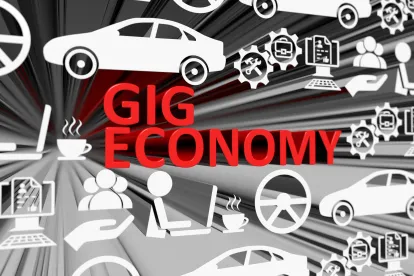On January 1, 2020, California’s new worker classification law known as Assembly Bill 5 (“AB 5”), goes into effect. AB 5 codifies the three-factor “ABC” test adopted by the California Supreme Court in its 2018 Dynamex decision.
The bulk of newly added Section 2750.3 of the California Labor Code describes the various categories of workers and businesses that were fortunate enough to negotiate an exemption from the ABC test in the waning days of the last legislative session. These lucky few include:
-
Licensed insurance agents, doctors, dentists, veterinarians, psychologists, lawyers, architects, engineers, private investigators, accountants, direct sales salespersons, securities broker-dealers, investment advisors, or commercial fishermen;
-
Real estate licensees and repossession agencies;
-
The services provided by a human resources administrator, travel agent, graphic designer, grant writer, fine artist, photographer or photojournalist, freelance writer/editor, freelance newspaper cartoonist, esthetician, electrologist, manicurist, barber, or cosmetologist that meet certain criteria;
-
Relationships between a contractor and an individual performing work pursuant to a subcontract in the construction industry that meet certain criteria;
-
Relationships between a referral agency and a service provider that uses the referral agency to connect with clients that meet certain criteria; and
-
Bona fide business-to-business contracting relationships that meet certain criteria.
For everyone else, now is the time to make some tough decisions and weigh the legal, technical, and financial implications of compliance with the new law, which provides for retroactive enforcement. To avoid facing potential liability for misclassification, hiring entities should consider whether: (1) certain categories of workers or business relationships are exempt; (2) it makes sense to proactively reclassify some or all current independent contractors as employees; or (3) restructuring business operations could result in compliance with the ABC test. We recommend that you contact your California employment counsel for further guidance.
But it’s not just California employers who are facing “an existential threat” (as the Pacific Research Institute calls it). For example, “New Jersey has been cracking down hard on the gig economy” and aims to pass a bill that would proclaim all state workers to be employees, with just a few exceptions. Described as a “policy Petri dish,” analysts expect that other states like New York, Washington, Oregon, and Illinois will follow California’s lead.
Meanwhile, gig-reliant and ride-share business are expected to be most impacted by the new law. It’s no secret that the primary motivating factor for the legislature’s passing AB 5 was to hand Sacramento’s labor union benefactors a vast new group of potential dues-paying union members. After all, the bill’s author, California State Assemblywoman Lorena Gonzalez is the former CEO and Secretary-Treasurer of the San Diego and Imperial Counties Labor Council, AFL-CIO, and she received almost 33 percent of all of her campaign contributions last year from organized labor.
In response, Uber, Lyft, and DoorDash have teamed up to put a voter initiative on the ballot called the “Protect App-Based Drivers and Services Act,” pledging to spend at least $110 million dollars to help convince voters next November that AB 5 should be amended to protect the rights of app-based rideshare and delivery workers who want to work as independent contractors. The ballot measure would protect worker flexibility and independence; require delivery service companies to offer new protections and benefits for drivers, including wage and benefit guarantees; and implement new customer and public safety protections.
But what about other freelance workers who do not qualify for job or industry/sector exemptions and who lack the political clout or financial resources necessary to fight for their right to make their own hours, set their own schedule, or work multiple jobs simultaneously? Unfortunately, there aren’t a lot of others options right now. We will keep you apprised of any developments.



 />i
/>i
